The leaves are changing, the football game is on the television, and the feast is on the table. Thanksgiving brings friends and family together, but the festivities can harm your pet. Our Burlington Veterinary Center team shares do’s and don’ts to help you safeguard your pet during the holiday.
DO distinguish your pet
Strangers milling around the kitchen, football commentators shouting on the television, and noisy, excited children playing in the house can upset your pet. An anxious pet may look for the opportune moment to find an escape route to get away from the mayhem, so ensure your pet is properly identified in case they go missing. Microchipped pets have the best chance of being returned to their owners, and this relatively painless procedure can easily be performed at your pet’s next wellness visit. Once the chip is implanted, ensure you keep your contact information updated in the microchip registry. In addition, your pet should always wear a well-fitted collar and identification tags that have your current contact information.
DON’T let your pet near the big bird
Turkey is a Thanksgiving tradition, but the feathered fowl can be harmful for your pet. Potential turkey-related hazards include:
- Brittle bones — Bones, especially small bones like turkey bones, become brittle when cooked, which can lead to a choking hazard, or a mouth or gastrointestinal tract injury from a sharp piece.
- Fatty skin — Turkey skin is high-fat, and pets don’t handle fatty foods well. Their pancreas releases an enzyme to help digest the fat, and this enzyme can damage the pancreas and result in signs including abdominal pain, diarrhea, and vomiting. In addition, toxins released when the pancreatic tissue is damaged can cause inflammation to spread throughout the pet’s body, a potentially life-threatening situation.
- Salty brine — Turkey brine has an extremely high salt content, and ingestion can lead to salt toxicity. Signs include increased thirst and urination, vomiting, and diarrhea. In severe cases, electrolyte imbalances and cerebral edema can occur.
DO provide pet safe treats at your Thanksgiving feast
The yummy fragrances coming from your kitchen will make your pet jealous, but pet-safe treats can help dissuade them from partaking in your Thanksgiving feast. In addition to concerns about fatty foods causing pancreatitis, many common Thanksgiving foods are toxic to pets, including:
- Allium vegetables — Vegetables in the Allium family, including onions, garlic, shallots, chives, and leeks, are toxic to pets. They contain N-propyl disulfide, which damages a pet’s red blood cells, resulting in anemia. After ingestion, most pets experience gastrointestinal signs such as vomiting and diarrhea, but as the toxin destroys the pet’s red blood cells, anemia signs, including weakness, reddish tinted urine, and collapse, can occur.
- Grapes — Grapes and their cousins, raisins and currants, contain an unknown toxin that causes kidney failure in pets.
- Bread dough — If your pet ingests uncooked bread dough, the fermentation process that causes the bread to rise continues in their stomach. This process produces alcohol that enters your pet’s bloodstream and can result in alcohol poisoning.
- Xylitol — Xylitol is a common sugar substitute used in sugar-free treats that can lead to severe hypoglycemia in pets. Signs include weakness, incoordination, seizures, and collapse.
- Chocolate — Dark chocolate is the most dangerous for pets, but avoid feeding your pet any form of chocolate. This delectable treat contains stimulants, such as caffeine and theobromine, that cause signs in pets that include excessive panting, increased heart rate and respiration, restlessness, and in severe cases, seizures.
- Macadamia nuts — All nuts have a high fat content and can trigger pancreatitis, but macadamia nuts are especially dangerous, because they contain an unknown toxin that causes muscle weakness, depression, elevated body temperatures, and vomiting.
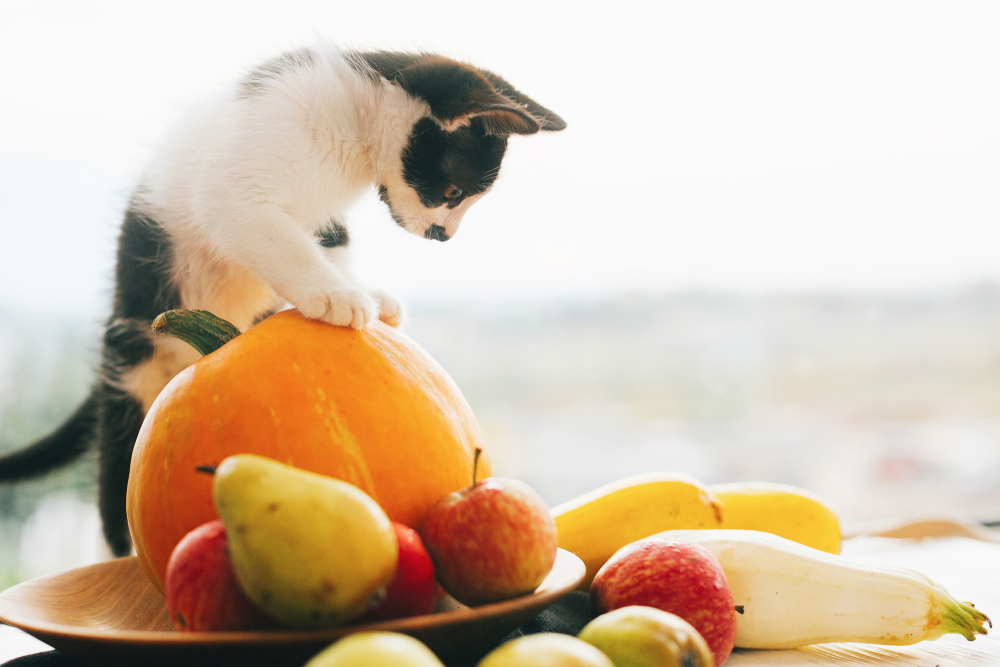
DON’T let your pet appreciate the Thanksgiving decorations
Pets frequently investigate their world with their mouth, and have to explore any new additions to their environment. However, several common seasonal Thanksgiving decorations are dangerous for pets. These include:
- Acorns — Acorns contain tannins, which can cause gastrointestinal upset in pets and lead to kidney failure in severe cases.
- Autumn crocuses — Autumn crocuses are highly toxic to pets. They contain a toxic alkaloid (i.e., colchicine) that causes vomiting, bloody diarrhea, gastrointestinal bleeding, respiratory failure, liver and kidney damage, and seizures.
- Chrysanthemums — Chrysanthemums contain pyrethrins and lactones that cause vomiting, diarrhea, hypersalivation, and incoordination.
- Lilies — Ingesting a lily flower, leaf, pollen, or the vase water can cause severe kidney failure in pets. Cats are especially sensitive.
DO prepare your pet if you are traveling for Thanksgiving
If you will be traveling with your pet for the holiday, ensure they are safe on the trip. Tips include:
- Secure your pet in the car — Ensure your pet is restrained at all times when traveling in a vehicle. Small pets should be put in a carrier and placed on the vehicle floor, and larger pets should be restrained using a safety harness.
- Don’t leave your pet unattended — Regardless of the weather, never leave your pet unattended in a vehicle.
- Make emergency preparations — Locate veterinary emergency clinics along your route and at your final destination, in case your pet experiences an emergency.
Following these do’s and don’ts should help prevent a veterinary visit on Thanksgiving. If you would like your pet microchipped before turkey day, contact our Burlington Veterinary Center team, so we can ensure they are ready for the holiday.


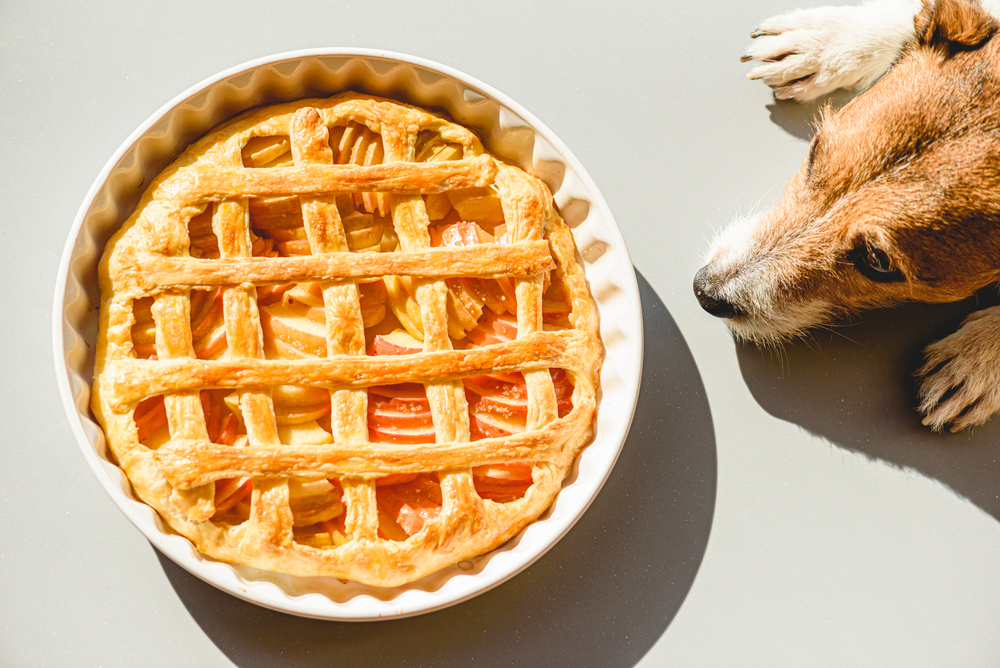
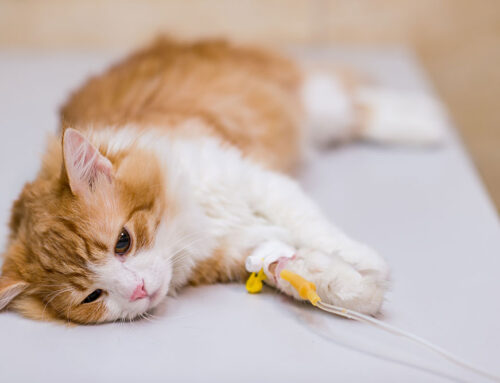
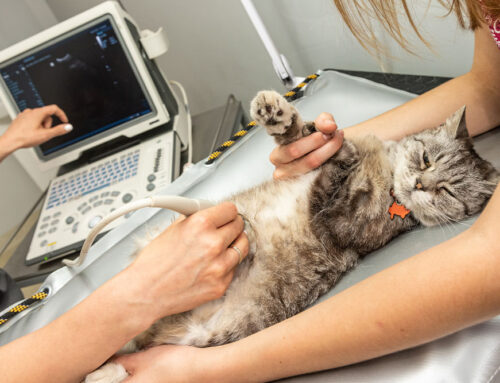

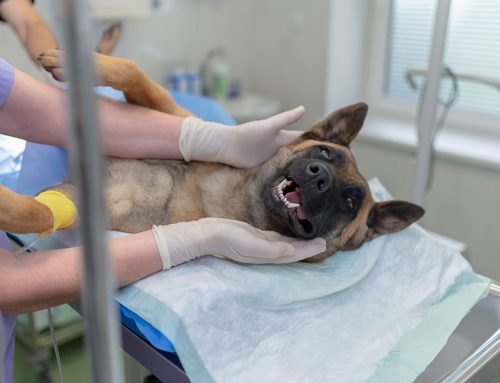
Leave A Comment